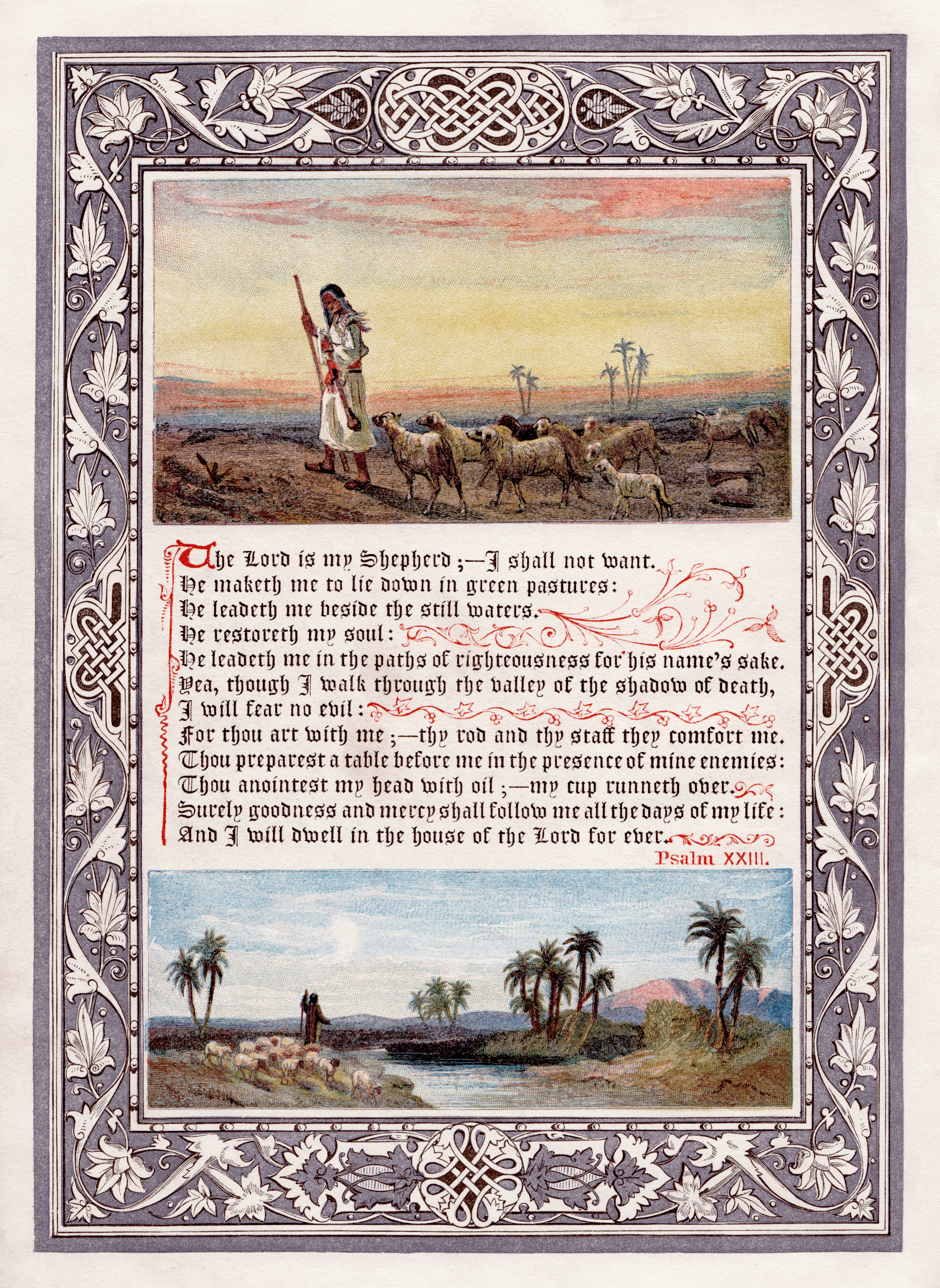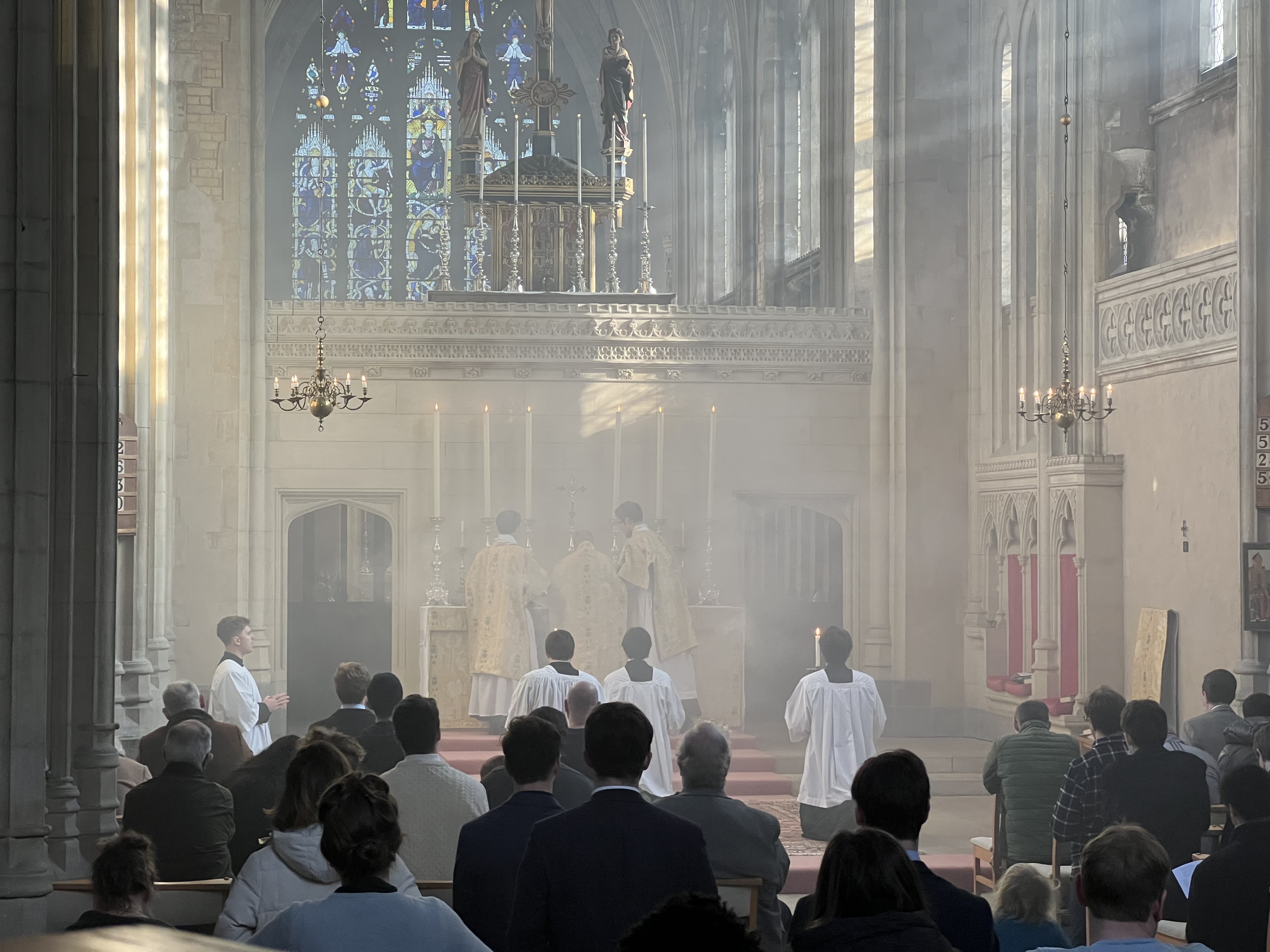|
Tract (literature)
A tract is a literary work and, in current usage, usually religious in nature. The notion of what constitutes a tract has changed over time. By the early part of the 21st century, a tract referred to a brief pamphlet used for religious and political purposes. Tracts are often either left for someone to find or handed out. However, there have been times in history when the term implied tome-like works. A ''tractate'', a derivative of a tract, is equivalent in Hebrew literature to a ''chapter'' of the Christian Bible. History The distribution of tracts pre-dates the development of the printing press, with the term being applied by scholars to religious and political works at least as early as the 7th century. They were used to disseminate the teachings of John Wycliffe in the 14th century. As a political tool, they proliferated throughout Europe during the 17th century. They have been printed as persuasive religious material since the invention of Gutenberg's printing press, be ... [...More Info...] [...Related Items...] OR: [Wikipedia] [Google] [Baidu] |
Anglican
Anglicanism, also known as Episcopalianism in some countries, is a Western Christianity, Western Christian tradition which developed from the practices, liturgy, and identity of the Church of England following the English Reformation, in the context of the Protestant Reformation in Europe. It is one of the largest branches of Christianity, with around 110 million adherents worldwide . Most are members of national or regional Ecclesiastical province#Anglican Communion, ecclesiastical provinces of the international Anglican Communion, one of the largest Christian bodies in the world, and the world's third-largest Christian communion. When united and uniting churches, united churches in the Anglican Communion and the breakaway Continuing Anglican movement were not counted, there were an estimated 97.4 million Anglicans worldwide in 2020. Adherents of Anglicanism are called ''Anglicans''; they are also called ''Episcopalians'' in some countries. The provinces within the Anglican ... [...More Info...] [...Related Items...] OR: [Wikipedia] [Google] [Baidu] |
Hudson Taylor
James Hudson Taylor (; 21 May 1832 – 3 June 1905) was a British Protestant Christian missionary to China and founder of the OMF International, China Inland Mission (CIM, now OMF International). Taylor spent 54 years in China. The society that he began was responsible for bringing over 800 missionaries to the country who started 125 schools and directly resulted in 20,000 Christian conversions, as well as the establishment of more than 300 stations of work with more than 499 local helpers in all 18 provinces. Taylor was known for his admiration for Chinese culture and zeal for evangelism. He adopted wearing native Chinese clothing even though this was very rare among missionaries of that time. Under his leadership, the CIM was singularly non-denominational in practice and accepted members from all Protestant groups, including individuals from the working class, and single women as well as multinational recruits. Primarily because the CIM campaigned against the History of opiu ... [...More Info...] [...Related Items...] OR: [Wikipedia] [Google] [Baidu] |
Lund
Lund (, ;"Lund" (US) and ) is a city in the provinces of Sweden, province of Scania, southern Sweden. The town had 94,393 inhabitants out of a municipal total of 130,288 . It is the seat of Lund Municipality, Scania County. The Öresund Region, which includes ''Lund'', is home to more than 4.2 million people. Archeologists date the founding of Lund to around 990, when Scania was part of Denmark. From 1103 it was the seat of the Catholic Metropolitan Archdiocese of Lund, and the towering Lund Cathedral, built –1145, still stands at the centre of the town. Denmark ceded the city to Sweden in the Treaty of Roskilde in 1658. Lund University, established in 1666, is one of Scandinavia's oldest and largest institutions for education and research. [...More Info...] [...Related Items...] OR: [Wikipedia] [Google] [Baidu] |
Nationalencyklopedin
(; "The National Encyclopedia" in English), abbreviated NE, is a comprehensive contemporary Swedish-language encyclopedia with several hundred thousand articles. It is available both online and via a printed version. History The project was initiated in 1980 when a government committee suggested that negotiations be initiated with various publishers. A loan from the Government of Sweden of 17 million Swedish krona, which was repaid by December 1990, provided funding. In August 1985, in Höganäs became the publisher responsible for the project. The project specifications were for a modern reference work based on a scientific paradigm incorporating gender and environmental issues. Pre-orders for the work were unprecedented; before the first volume was published in December 1989, 54,000 customers had ordered the encyclopedia. The last volume came out in 1996, with three supplemental volumes in 2000. 160,000 copies had been sold as of 2004. Associated with the project ... [...More Info...] [...Related Items...] OR: [Wikipedia] [Google] [Baidu] |
Religious Tract Society
The Religious Tract Society was a British evangelical Christian organization founded in 1799 and known for publishing a variety of popular religious and quasi-religious texts in the 19th century. The society engaged in charity as well as commercial enterprise, publishing books and periodicals for profit. Periodicals published by the RTS included '' Boy's Own Paper'', '' Girl's Own Paper'' and '' The Leisure Hour''. In 1935, it merged into what is today the United Society for Christian Literature. Formation and early history The idea for the society came from the Congregationalist minister George Burder, who raised the idea while meeting with the London Missionary Society (founded in 1795) in May 1799. It was formally established on 10 May 1799, having a treasurer, a secretary, and ten committee members, with members required to " ubscribehalf a guinea or upwards annually". Its initial membership was drawn from the London Missionary Society, and included: * David Bogue, Indep ... [...More Info...] [...Related Items...] OR: [Wikipedia] [Google] [Baidu] |
Anglo-Catholicism
Anglo-Catholicism comprises beliefs and practices that emphasise the Catholicism, Catholic heritage (especially pre-English Reformation, Reformation roots) and identity of the Church of England and various churches within Anglicanism. Anglo-Catholicism claims to restore Christian liturgy, liturgical and Anglo-Catholic devotions, devotional expressions of church life that reflect the ancient practices of the early and medieval church. The term was coined in the early 19th century, although movements emphasising the Catholic nature of Anglicanism already existed. Particularly influential in the history of Anglo-Catholicism were the Caroline Divines of the 17th century, the Jacobitism, Jacobite Nonjuring schism of the 17th and 18th centuries, and the Oxford Movement, which began at the University of Oxford in 1833 and ushered in a period of Anglican history known as the "Catholic Revival". History The historic Anglican formularies, developed under the influence of Thomas Cranme ... [...More Info...] [...Related Items...] OR: [Wikipedia] [Google] [Baidu] |
History Of Christianity
The history of Christianity began with the life of Jesus, an itinerant Jewish preacher and teacher, who was Crucifixion of Jesus, crucified in Jerusalem . His followers proclaimed that he was the Incarnation (Christianity), incarnation of God in Christianity, God and had Resurrection of Jesus, risen from the dead. In the two millennia since, Christianity has spread across the world, becoming the List of religious populations, world's largest religion with Christian population growth, over two billion adherents worldwide. Christianity was initially a Grassroots, grassroots movement spread within cities by apostles, reaching Critical mass (sociodynamics), critical mass by the third century when it grew to over a million adherents. Constantine the Great and Christianity, The support of the Roman emperor Constantine the Great, Constantine in the early fourth century was important in transforming it into an organized religion with New Testament, a formalized religious text. Consta ... [...More Info...] [...Related Items...] OR: [Wikipedia] [Google] [Baidu] |
Church Father
The Church Fathers, Early Church Fathers, Christian Fathers, or Fathers of the Church were ancient and influential Christian theologians and writers who established the intellectual and doctrinal foundations of Christianity. The historical period in which they worked became known as the Patristic Era and spans approximately from the late 1st to mid-8th centuries, flourishing in particular during the 4th and 5th centuries, when Christianity was in the process of establishing itself as the state church of the Roman Empire. For many denominations of Christianity, the writings of the Ante-Nicene Fathers, Nicene Fathers and Post-Nicene Fathers are included in Sacred Tradition. As such, in traditional dogmatic theology, authors considered Church Fathers are treated as authoritative for the establishment of doctrine. The academic field of patristics, the study of the Church Fathers, has extended the scope of the term, and there is no definitive list. Some, such as Origen and Ter ... [...More Info...] [...Related Items...] OR: [Wikipedia] [Google] [Baidu] |
Theology
Theology is the study of religious belief from a Religion, religious perspective, with a focus on the nature of divinity. It is taught as an Discipline (academia), academic discipline, typically in universities and seminaries. It occupies itself with the unique content of analyzing the supernatural, but also deals with religious epistemology, asks and seeks to answer the question of revelation. Revelation pertains to the acceptance of God, gods, or deity, deities, as not only transcendent or above the natural world, but also willing and able to interact with the natural world and to reveal themselves to humankind. Theologians use various forms of analysis and argument (Spirituality, experiential, philosophy, philosophical, ethnography, ethnographic, history, historical, and others) to help understanding, understand, explanation, explain, test, critique, defend or promote any myriad of List of religious topics, religious topics. As in philosophy of ethics and case law, arguments ... [...More Info...] [...Related Items...] OR: [Wikipedia] [Google] [Baidu] |
Edward Pusey
Edward Bouverie Pusey (; 22 August 180016 September 1882) was an English Anglican cleric, for more than fifty years Regius Professor of Hebrew at the University of Oxford. He was one of the leading figures in the Oxford Movement, with interest in sacramental theology and typology. Early years He was born at Pusey House in the village of Pusey in Berkshire (now administratively a part of Oxfordshire). His father, Philip Bouverie-Pusey, who was born Philip Bouverie and died in 1828, was a younger son of Jacob des Bouverie, 1st Viscount Folkestone; he adopted the name of ''Pusey'' on succeeding to the manorial estates there. His mother, Lady Lucy Pusey, the only daughter of Robert Sherard, 4th Earl of Harborough, was the widow of Sir Thomas Cave, 7th Baronet, MP before her marriage to his father in 1798. Among his siblings was older brother Philip Pusey and sister Charlotte married Richard Lynch Cotton. Pusey attended the preparatory school of the Rev. Richard Roberts in ... [...More Info...] [...Related Items...] OR: [Wikipedia] [Google] [Baidu] |
Henry Edward Manning
Henry Edward Manning (15 July 1808 – 14 January 1892) was an English prelate of the Catholic Church, and the second Archbishop of Westminster from 1865 until his death in 1892. He was ordained in the Church of England as a young man, but converted to Catholicism in the aftermath of the Gorham judgement. Early life Manning was born on 15 July 1808 at his grandfather's home, Copped Hall, Totteridge, Hertfordshire. He was the third and youngest son of William Manning, a prominent merchant and slave owner, who served as a director and (1812–1813) as a governor of the Bank of England and also sat in Parliament for 30 years, representing in the Tory interest Plympton Earle, Lymington, Evesham and Penryn consecutively. Manning's mother, Mary (died 1847), daughter of Henry Lannoy Hunter, of Beech Hill, and sister of Sir Claudius Stephen Hunter, 1st Baronet, came from a family of French Huguenot extraction. Manning spent his boyhood mainly at Coombe Bank, Sundridge, Kent, ... [...More Info...] [...Related Items...] OR: [Wikipedia] [Google] [Baidu] |









